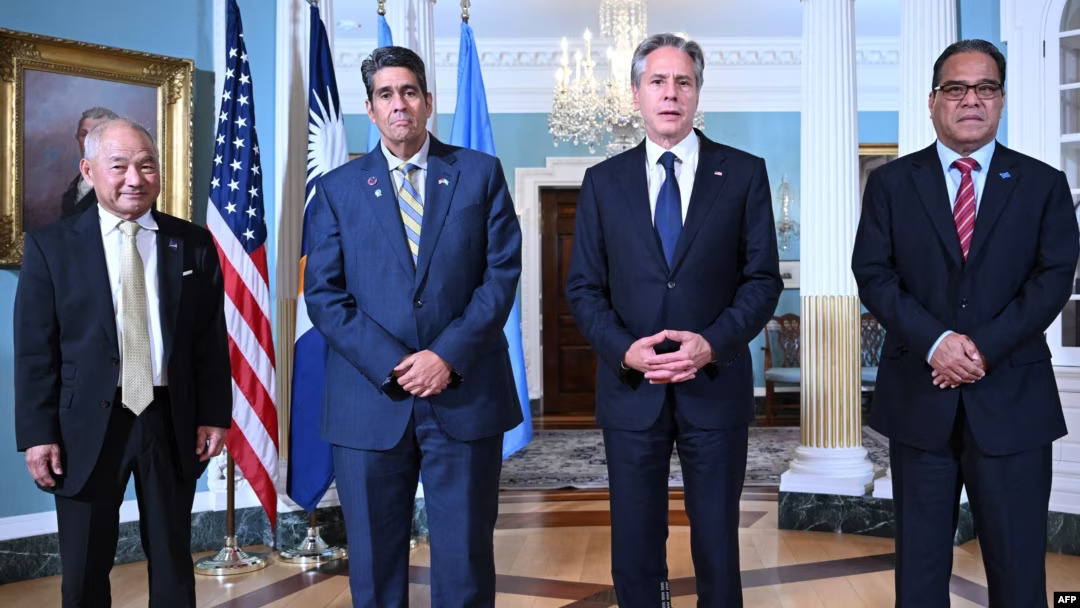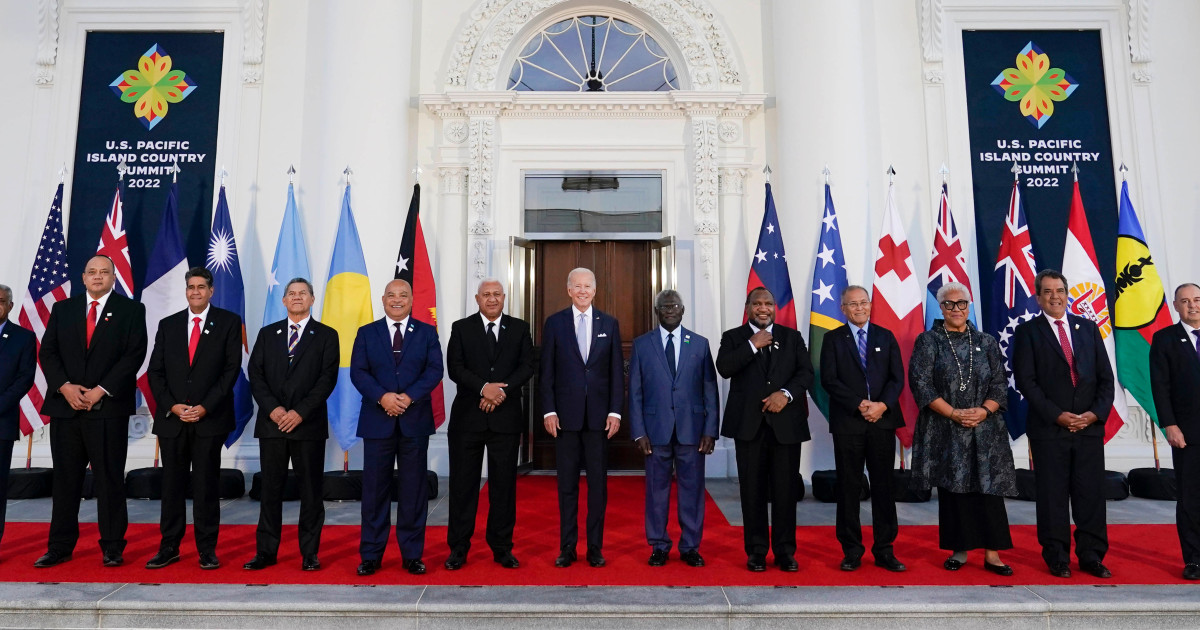The ongoing budget impasse in Congress has extended the wait for crucial funding for three Pacific Island nations allied with the United States, potentially heightening their susceptibility to influence by China, including over Taiwan, according to warnings from their leaders.
Palau, the Marshall Islands, and the Federated States of Micronesia, formerly U.S.-administered trust territories, now independent states, maintain close ties with the United States through Compacts of Free Association (COFA) agreements.
These agreements entail economic assistance and defense guarantees in exchange for granting Washington exclusive military access to a vast Pacific area, larger than the continental United States, especially significant amidst the U.S.-China strategic rivalry in the region.
The renewal of security compacts for another 20 years in May was anticipated to be implemented by October 1. However, despite bipartisan support, Congress has delayed the approval of the $7.1 billion funding for months.

Warning: Delay in U.S. Funding May Present Opportunity for China, Caution Pacific Island Nations (Credits: VOA News)
The delay has caused uncertainty among the citizens of these nations, as expressed in a joint letter from the leaders of Palau, the Marshall Islands, and the Federated States of Micronesia to multiple senators. They highlighted how the delay has led to undesirable opportunities for economic exploitation by other political actors active in the Pacific.
Congress has been embroiled in disputes over an emergency supplemental budget request, which includes aid for Israel, Ukraine, and Taiwan, among others. Republicans have blocked its approval, insisting on addressing security at the U.S.-Mexico border. Despite earlier drafts, including funding for the Pacific Island nations, it was removed at the last minute.
This delay has exacerbated economic uncertainty in Palau, which has faced challenges with declining tourism even before the COVID-19 pandemic. President Surangel Whipps Jr. expressed concerns that it could make China appear as a more reliable partner. He highlighted Chinese investors arriving and making promises amidst vulnerabilities, suggesting a potential erosion of confidence in the U.S. relationship.
China’s economic incentives have influenced diplomatic decisions in the region, such as Nauru’s recent switch of diplomatic recognition from Taipei to Beijing. With China aiming to isolate Taiwan internationally, it seeks to sway other allies of Taiwan, including Palau, the Marshall Islands, and Tuvalu.
Amidst these developments, the White House has announced an Indo-Pacific economic pact and hosted summits for Pacific Island leaders. The Biden administration has emphasized the urgency of Congress approving funding for the Pacific Island nations. Without the security compacts, it could cost the U.S. significantly more to secure the same Pacific area independently.
President Whipps emphasized the critical importance of Congress taking action, not only for his country but also for the broader Indo-Pacific region. He expressed optimism in the democratic process and the role of the United States in resolving the situation.























